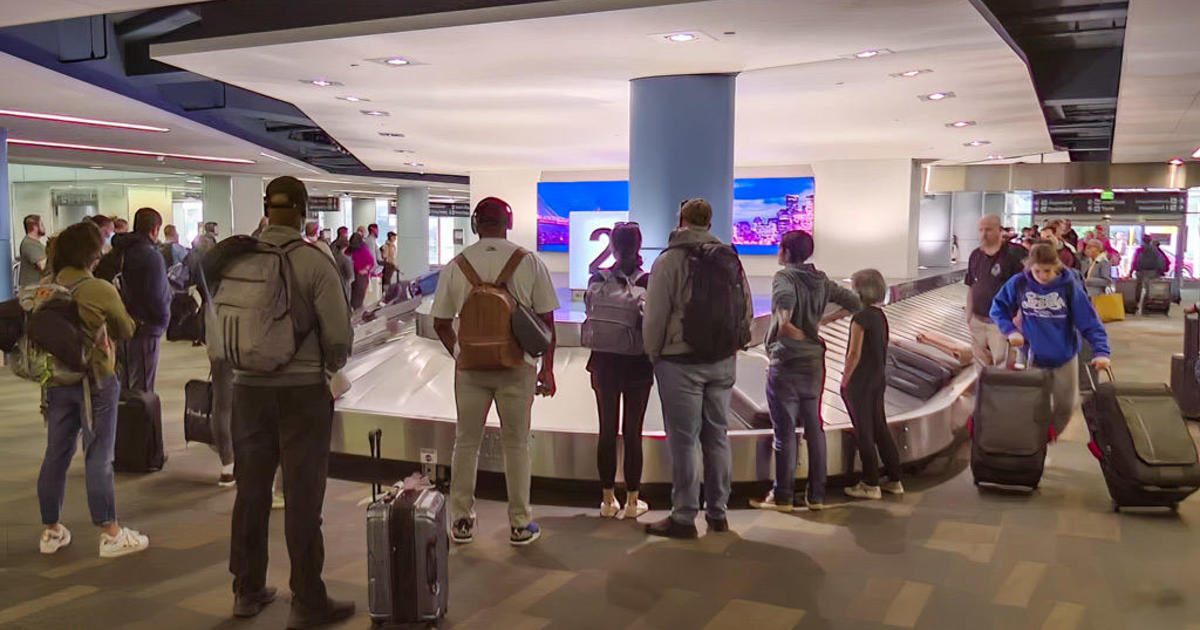Governor Brown Signs Compromise On Internet Taxes
SACRAMENTO (CBS/AP) - Gov. Jerry Brown signed legislation Friday that postpones new sales taxes rules that would have affected online purchases in California, granting more time for traditional and online retailers to lobby Congress for a national standard on the high-stakes issue.
The bill, crafted as a compromise among Amazon.com, traditional retailers and California lawmakers searching for ways to raise revenue, delays until at least September 2012 online tax rules that were implemented as part of this year's state budget package.
Under the compromise, Amazon will drop a ballot referendum planned for next year to overturn the law passed earlier in the summer, a move that promised an ugly and expensive campaign fight between online and traditional retailers.
"When you get two threats, that gives you an opportunity to find a compromise," Brown said after he signed the bill at Gap Inc. offices in San Francisco. "Hopefully, (the bill) will set an example for our colleagues in Washington that they too can cooperate."
If that effort fails, Amazon has agreed to start collecting sales tax from California customers. The budget bill signed previously by Brown forced more online retailers to collect the state sales tax effective July 1. The move prompted Amazon to cut ties with some 25,000 affiliate businesses in California and spend more than $5 million to collect signatures for the ballot referendum.
The compromise bill will cost California an estimated $200 million in tax revenue during the current fiscal year but helps both sides avoid a costly election contest and the possibility of legal challenges. State taxing authorities estimate that California loses at least $83 million a year in uncollected state and local use tax attributed to Amazon's sales.
Under the deal, the retailing giant will rekindle its relationship with its California affiliates and has promised to create at least 10,000 full-time jobs and hire 25,000 seasonal employees in the state by the end of 2015.
In a statement, Amazon's vice president of global public policy, Paul Misener, called the compromise legislation a win for all sides.
"We're committed to working with Congress, retailers and the states to pass federal legislation as soon as possible and as analysts have noted, we'll continue to offer customers the best prices, regardless of whether sales tax is charged," he said.
Consumers are required under state law to pay sales tax when they order online from companies out of state, but the tax is virtually impossible to enforce without the cooperation of the retailers. Customers rarely pay.
Traditional retailers, from Wal-Mart to local business owners, say the inability to police taxation on the Internet creates an uneven playing field, with online retailers gaining an unfair advantage.
A 1992 U.S. Supreme Court ruling in a case involving a mail-order retailer says a business must only collect state tax from customers if it has a physical presence in the state where they live, such as a retail store. Several states responded by trying to broaden the definition of physical presence. At least six states had done so by 2010 while nine more, including California, launched similar legislative attempts this year.
California's version, under the bill signed earlier this summer, imposed tax-collection duties on a company if it used marketing affiliates in the state to refer customers or if it had sister companies in California, such as Amazon's Silicon Valley company that developed the Kindle electronic book reader. Internet retailers such as Amazon and Overstock.com said that violated the Supreme Court ruling.
Amazon and the California Retailers Association worked out the compromise in the final days of the legislative session to postpone the tax measure and allow the online and traditional retail lobbies to make a unified push in Washington for a national standard.
The compromise also had the blessing of the California Chamber of Commerce and traditional retailers such as Barnes & Noble Inc., Best Buy Inc., Crate & Barrel, Sears, Target Corp. and Wal-Mart Stores Inc.
"Amazon's concession to finally begin collecting sales tax in California is a ground-breaking moment that sends a strong message to Washington that it is time to stop giving special treatment to a select few," Bill Dombrowski, president of the California Retailers Association, said in a statement released by the governor's office. "All retailers deserve the chance to compete, grow and create jobs on a level playing field, without government picking winners and losers."
(Copyright 2011 by CBS San Francisco. All Rights Reserved. This material may not be published, broadcast, rewritten, or redistributed.)



